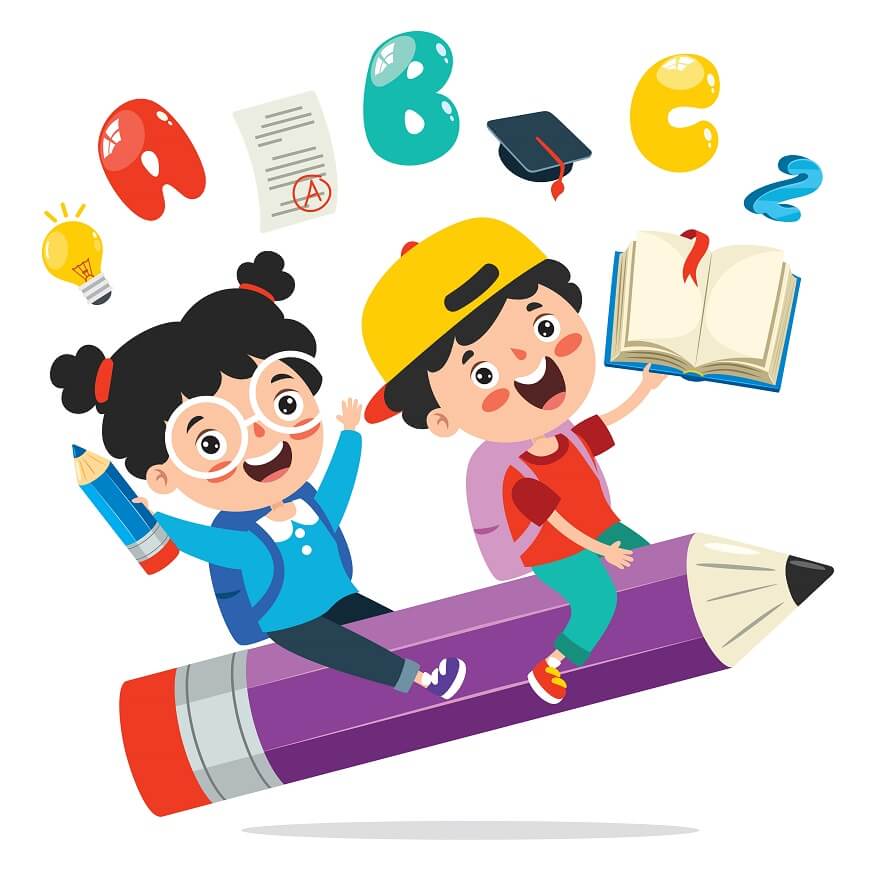Primary Education – Meaning, Significance, and Goals

Education begins with Primary Education, the foundational phase that imparts essential skills and knowledge to young learners. Primary Education typically targets children aged 6 to 12, fostering their cognitive, social, and emotional development. It lays the groundwork for future academic pursuits by focusing on fundamental subjects like mathematics, language arts, and science. The curriculum aims to instill critical thinking, basic literacy, and numeracy skills. Moreover, primary education plays a critical role in shaping attitudes and values, preparing students for higher levels of learning. This initial educational stage is crucial in equipping individuals with the tools necessary for a lifelong journey of intellectual growth.
Need of Primary Education: Why it is Crucial
Primary education is the foundation of a child’s intellectual and social development, playing a pivotal role in shaping their future. It equips them with essential skills, including literacy and numeracy, fostering a lifelong love for learning. Beyond academics, primary education instills crucial values, social norms, and ethical principles. Moreover, it promotes socialization, helping children build interpersonal skills and emotional intelligence. Accessible primary education empowers individuals, breaking the cycle of poverty and contributing to societal progress. It lays the groundwork for advanced education, ensuring a knowledgeable and skilled workforce.
What Significance does Primary Education hold?
The need and importance of primary education stands as a transformative phase that shapes a child’s future.
- Foundation for Lifelong Learning
- Building a Strong Educational Foundation: Primary education serves as the cornerstone for a child’s academic journey, providing fundamental knowledge and skills. It introduces basic concepts like reading, writing, and arithmetic, forming the basis for advanced learning.
- Impact on Future Academic Success: Success in higher education is often dependent on a solid need of primary education. A strong foundation equips students with critical thinking and problem-solving skills, enhancing their ability to grasp complex subjects.
- Holistic Development of Children
- Cognitive Development: Primary education stimulates cognitive growth by encouraging curiosity and exploration. Learning through play and interactive activities enhances memory, concentration, and intellectual capabilities.
- Social and Emotional Development: Primary education provides a safe environment for emotional expression and self-discovery, laying the groundwork for healthy emotional development.
- Social Equality and Inclusion
- Bridging the Education Gap: Primary education is important in narrowing educational disparities among socio-economic backgrounds. Offering a standardised curriculum ensures that all children, regardless of their background, have access to essential knowledge.
- Creating Equal Opportunities for All Children: Primary education promotes inclusivity, breaking barriers related to gender, ethnicity, or socio-economic status. It acts as a catalyst for societal change by empowering children with the tools to challenge discrimination and advocate for equality.
The Goals of Primary Education: What Parents Need to Know
The objectives of primary education encompass not only academic excellence but also character development and skills acquisition
- Academic Excellence
- Building Core Academic Skills: Primary education lays the foundation for fundamental skills in subjects like mathematics, language arts, and science. It also focuses on literacy and numeracy to ensure a strong academic base for future learning.
- Fostering a Love for Learning: Primary education encourages critical thinking and problem-solving to enhance students’ ability to apply theoretical concepts to real-life situations.
- Character Development
- Instilling Values and Ethics: It emphasises the importance of honesty, integrity, and respect for others. Kids get immense help in learning empathy and cultural understanding through primary education to promote a harmonious and inclusive society.
- Promoting Responsible Citizenship: Primary education develops a sense of civic responsibility and community engagement. It encourages students to understand and participate in democratic processes, fostering a commitment to the welfare of society.
- Skills Acquisition
- Development of Essential Life Skills: Primary education equips students with practical skills such as communication, teamwork, and time management. It also helps foster adaptability and resilience to prepare students for the challenges of an ever-evolving world.
- Preparing for Future Challenges: Primary education provides a solid foundation for higher education and lifelong learning, ensuring students are prepared for diverse career paths.
Challenges in Achieving Primary Education
Achieving primary education comes with its fair share of challenges. Disparities in access hinder educational opportunities, while various issues hamper enrollment rates. Curriculum challenges and a shortage of qualified teachers compromise the quality of education. Socio-economic factors further complicate matters, as poverty detrimental impacts primary education, and cultural barriers pose obstacles to learning. Addressing these challenges requires comprehensive strategies to bridge access gaps, enhance enrollment, improve curriculum, train qualified educators, tackle poverty’s influence, and dismantle cultural barriers. A concerted global effort is essential to ensure equitable and quality primary education for all, fostering a foundation for lifelong learning.
Innovations in Primary Education: New Ways of Learning
Evolution in primary education has reshaped traditional teaching methods, fostering interactive and personalised learning experiences. Digital platforms and educational apps engage students with interactive content, making lessons more dynamic. Gamification techniques, such as educational games and quizzes, promote active participation and enhance retention. Blended learning models combine online resources with classroom instruction, catering to diverse learning styles. Project-based learning encourages critical thinking and problem-solving skills. Inclusive practices ensure personalised support for students with varying needs. Moreover, emerging technologies like virtual reality offer immersive educational experiences. These innovations collectively empower educators to create a more flexible, engaging, and effective primary education environment.
Primary Education: What Future Trends Have in Store
In the future, primary education will be more about personalized learning that will leverage technology like AI and virtual reality to cater to individual student needs. Project-based learning and interdisciplinary approaches will gain prominence, fostering critical thinking and problem-solving skills. Global collaboration through online platforms will enhance cultural awareness and communication skills. Environmental sustainability education will be integrated, nurturing responsible citizens. Billabong High International School is at the forefront of these trends, championing innovative pedagogies, global perspectives, and a commitment to holistic development. They prepare students for the challenges and opportunities of the future. To learn more, contact us today!













